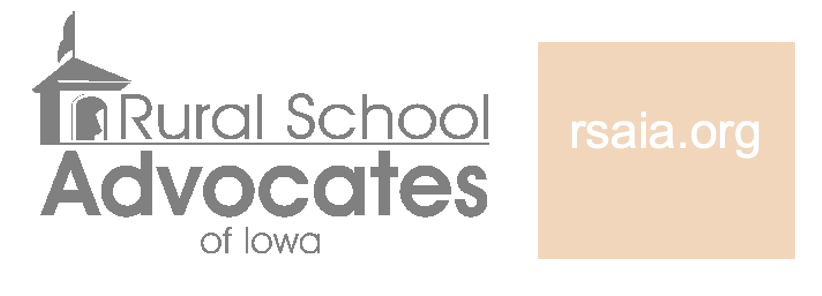Rural School Advocates Set 2022 Legislative Agenda
October 28, 2021
Representatives from member school districts of the Rural School Advocates of Iowa (RSAI), including Decorah Community School District, convened their Annual Meeting on Wednesday, October 26 at 4:30 PM at the FFA Enrichment Center in Ankeny. RSAI advocates on behalf of the students, parents and communities in rural Iowa to ensure that all students have access to a great Iowa education, regardless of where they live. RSAI members include over 140 Iowa school districts, with several being among the largest geographic school districts in the state. As Dennis McClain, Chair of RSAI and superintendent of the Adair-Casey and Guthrie-Center school districts reminded the members, “This is an organization of rural schools with a common mission of equality, not an organization of small schools.”
School Funding, known as State Supplemental Assistance or SSA, was a clear priority for RSAI members. Superintendent Dan Peterson of Central DeWitt Community School Districts said this funding is not just a priority but supports the very survival of rural schools. “We have 47 fewer school districts than we did just 20 years ago,” Peterson stated. School funding primarily pays for people: the teachers, counselors, librarians, administrators, nurses, secretaries, coaches, and custodians. Many of these positions are in critical short supply today in rural schools. According to Peterson, “Low funding inhibits our ability to attract and retain staff and to remain competitive with the private sector in Iowa’s growing economy.” Joel Pedersen, Superintendent at Cardinal Community School District, advocated for RSAI to insist on a specific increase of at least 3.75% per pupil. “In 11 of the last 12 years, the increase per pupil has not been enough to cover our schools’ cost of doing business. We appreciate the legislature and Governor committing to funding for formula equity and transportation assistance, but with today’s wage inflation, we simply can’t continue with 2% increases and keep up with Iowa’s private sector employers.” The group discussed the record fiscal year 2021 surplus carried forward in the state budget, with over $800 million available to the state for funding Iowa’s priorities, including public education.
Innovation during the pandemic will improve instruction and student engagement in the future–if students and staff have access to good internet connections. Closing the technology divide is a clear priority for RSAI members. Superintendent Brian Johnson, shared superintendent for Prairie Valley and Southeast Webster Grant and Community School Districts, thanked Governor Reynolds for her push on expanded internet in Iowa last session and encouraged her and Iowa’s legislators to keep at it. “Iowa’s rural students and staff need reliable and affordable broadband internet connections to continue our progress in STEM and computer science classes, as well as connecting us to resources throughout the world. This is no longer just a homework gap for our students.”
Barb Schwamann, shared superintendent for Riceville and Osage Community School Districts, advocated for flexibility and supports for rural schools to recruit and retain great teachers, bus drivers, and staff. “Those of us on a state border see teachers drive a short commute for thousands more in salary. State licensure, accreditation, and retirement requirements are barriers to recruiting local community members and retired teachers to fill vacant positions right away. Although the pandemic has made it harder to fill vacant positions, we’ve seen this coming in rural Iowa for years. Educators must be a critical component of Iowa’s Future Ready Workforce focus.”
RSAI members also included the following issues as additional priorities for the 2021 Legislative Session:
- Local School Board flexibility and authority, including a commitment to implementing home rule and interpreting Iowa’s laws (liberally construe the statute and court rulings) to effectuate the purposes of local control.
- Quality preschool, including funding for 3- and 4-year old preschool at a 1.0 weighting, to help provide full day service and cover transportation costs in rural schools.
- Student mental health, including resources to assess and address students’ social, emotional, and behavioral needs, especially for Iowa’s rural students living in communities without mental health providers.
- Formula and Transportation Equity: formula equity, closing the state and district per pupil gap within ten years and continued transportation equity support without burdensome reporting requirements.
- Sharing Incentives/Efficiencies: extension of Whole Grade Sharing, Reorganization, and Operational Sharing Incentives. The 21-student cap should expand to allow access to any new flexibility.
- Opportunity equity for students from low-income families, with funding to help cover mandated fee waivers and to provide services to support these students to succeed.
Resources: Position papers on key issues and a Digest of the 2021 Legislative Session are available on the RSAI legislative web page, http://www.rsaia.org/legislative.html or by contacting Margaret Buckton, Professional Advocate, RSAI Margaret.buckton@rsaia.org 515.201.3755
